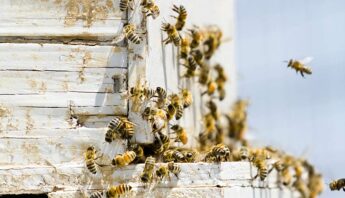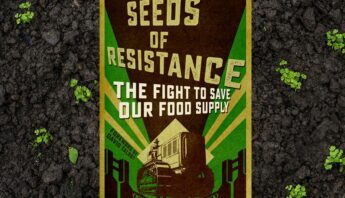Iowa City, IA — Scientists from the U.S. Geological Service have published findings that two metabolites of a widely used neonicotinoid insecticide — desnitro-imidacloprid and imidacloprid-urea — have been found in drinking water. The findings are sparking public health concerns, as desnitro-imidacloprid is 319 times more toxic to mammals than the parent neonicotinoid chemical, imidacloprid. In addition, the scientists determined through laboratory studies that a neonicotinoid-derived chlorine byproduct is likely produced during common water disinfection treatments such as chlorination. Other chlorine-based byproducts produced during water treatment have been linked to cancer and birth defects.
Marcia Ishii-Eiteman, senior scientist at Pesticide Action Network, issued this statement:
“The latest scientific findings about the public health risks of neonicotinoid byproducts showing up in our drinking water should set off alarm bells across the country. Nearly 100% of field corn and 50% of soybean seeds are coated with neonicotinoids such as imidacloprid, and these seeds are planted on approximately 150 million acres of U.S. farmland. We’ve long known that this class of controversial insecticides is a key factor in the disastrous decline of honeybees and other pollinators around the country. These findings reveal that the health of rural communities may also be at risk. The new evidence that potentially hazardous metabolites of imidacloprid — the active ingredient in Bayer’s best-selling insecticide product, Gaucho — are now turning up in our drinking water demands our immediate attention and action.
For a start, the Environmental Protection Agency (EPA) must ensure that these untested neonic-derived byproducts are included in its upcoming assessment of the human health risks associated with neonicotinoids. And the U.S. Department of Agriculture (USDA) — an agency with a long and troubled history of supporting the pesticide industry’s interests over farmers’ health and livelihoods — must reverse course and provide farmers with meaningful options for accessing non-coated seeds. Many farmers across the country have already transitioned out of chemical-intensive production methods in favor of non-toxic, pollinator-friendly, ecological crop management. Scientists and public health researchers are showing us that this must be done; America’s best innovative farmers are showing us that this can be done.”







